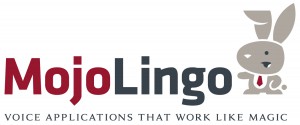
 Ben Klang has been fascinated with communication technology since before he can remember. He has participated in (Real Time Communication) RTC-related startups, contributed to several Open Source projects such as Asterisk, FreeSWITCH and ejabberd; leads the Adhearsion project (an Open Source real-time communications application framework), and even picked up an Amateur Radio license.
Ben Klang has been fascinated with communication technology since before he can remember. He has participated in (Real Time Communication) RTC-related startups, contributed to several Open Source projects such as Asterisk, FreeSWITCH and ejabberd; leads the Adhearsion project (an Open Source real-time communications application framework), and even picked up an Amateur Radio license.
Experienced with diverse technology disciplines such as telephony, system administration, software development and networking, he enjoys solving complex problems. With these passions he founded Mojo Lingo in 2007 with a mission to create voice applications that work like magic. Today, Mojo Lingo and Adhearsion are leading innovators in real time communication applications.
What are some of your current and past telecom app development projects?
We have worked with companies large and small, from “household names” to startups, in some cases we assisted them from the very beginning of their existence, figuring out how to take their business ideas and help turn them into production-grade services. With other companies we’ve integrated into their existing development teams and successful product lines bringing new ideas and our expertise to bear.
We have an internal project that has been gaining interest from our existing and prospective clients: the idea of voice-driven, cross-channel virtual assistants. Siri has done a fantastic job of getting people comfortable with asking a computer for help. We see a possibility to embed those kinds of smarts into enterprises by creating a persona that is aware of existing enterprise data sources, such as CRMs, ticketing systems, employee directories, etc. We have a few implementations already underway to bring virtual assistants to call centers and even mobile phone networks. I’m excited to see how this will develop.
What does Mojo Lingo do?
Mojo Lingo fulfills two primary roles with most of our clients: First, we are an innovation shop. We like to partner with clients at the “lightbulb” stage, taking an idea and exploring whether and how the available technology supports the idea. Second, we are a development partner. We offer expertise in real-time communications development and help turn those lightbulbs into profitable products and services. Along the way, we try to help change the way people perceive Real-Time Communications – it’s definitely so much more than just a phone call!
One of the main things I see changing is the future of how and where we communicate. Today, RTC for the average person on the street is primarily in the form of a mobile phone call. In the not very distant future, I see the act of communicating as something that will be embedded, integrated into existing applications.
I like to call this “Communications as a Feature.” Rather than an isolated channel, integrated communications can take advantage of the context provided by the application, offering stronger sources of identity verification, reduce duplication of information (never use DTMF key your account number again!), and enable archival and future accessibility of past communications.
This borrows from many of the ideas that the Hypervoice Consortium is rightly championing. The tools of the trade: speech recognition, text-to-speech, WebRTC and Voice over IP in general, all support these new possibilities. It’s an exciting time to be a Telecom Apps Developer.
How did you get involved in Telecom App Development?
Back in 2002 my father-in-law was incensed when his local telephone company stopped offering a Follow-Me type service. While those are very common today, back then they were not, so we created a startup to offer Follow-Me services. While that startup didn’t last, it did give me an early exposure to open source telephony through the Asterisk project.
When I decided to strike out on my own in 2007, I already had “bitten the bug” – there is something very appealing about enabling people to connect through one of the most intimate and expressive mediums, real-time voice and video. Through our work sponsoring the Adhearsion project, Mojo Lingo has been very privileged to work with many innovative companies and individuals trying to find new ways to make Telecom Apps more powerful, more useful, more ubiquitous.
Why did you become involved in TADHack?
TADHack is the first initiative I’ve seen that focuses on bringing together the innovators in the development community and the network operators through whom those applications can be delivered. It’s an important symbiosis and the community sorely needed a venue to open these channels.
I’m excited at the opportunity both to talk about the state of the art with my industry colleagues as well as have discussions with those who serve the large customer bases today about what commercial possibilities exist. Mojo Lingo is honored to be a part of the TADS community.
What are you hoping to get out of TADHack?
As I mentioned above, I’m looking forward to meeting other developers as well as representatives from network operators. We’re only in the beginning stages of this, and I think events like TADHack and TADSummit will be an important part of where the future of telecommunications is decided.
